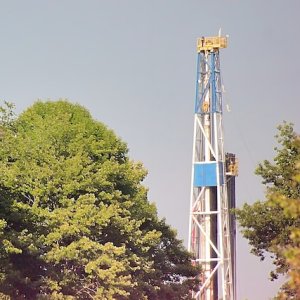Creation of Green Certifications for Mexico

STORY INLINE POST
Although Mexico has not yet embraced green building certifications as common practice, the foundations are being laid and many different entities are working on promoting this culture. Against this backdrop, Sustentabilidad para México (SUMe) was created as an organization that aims to improve the general population’s quality of life through collaborative actions that promote sustainability. Part of its strategy includes lobbying for the creation of national certification systems, to be applied across the public and private sectors. As a cornerstone of this strategy SUMe has built its own network, by approaching universities, private companies and certification institutions such as Underwriters Laboratories.
SUMe’s web of influential collaborators is a strong argument to convince other important companies to join the association. Additionally, SUMe is deeply involved in promoting sustainability through education, hosting several programs together with universities that are aimed at informing young people about global trends in this area. Working alongside the government is undeniably important when pursuing such a cause. SUMe has joined with SEMARNAT and ONCE in the process of creating regulations and adjusting normative aspects, and this will enable the association to develop new strategies. Part of SUMe’s vision involves integrating, applying and shaping sustainable development through well-established international certifications, such as LEED certificates. “In Mexico, LEED remains a niche accomplishment, with mostly international companies such as HSBC having obtained it here. But in order for Mexico to move in a sustainable direction, it will be necessary to develop, implement, and popularize certification tools,” says Darío Ibargüengoitia, President of SUMe.
LEED certified buildings use resources more efficiently than conventional buildings, providing healthier surroundings for workers. This is said to foster higher productivity in working environments, which appeals to employers and corporations. However, organizations like SUMe and policymakers champion LEED because of its overall benefits, such as improving air quality, saving on water and energy and reducing solid waste. LEED certifications are based on US standards, and do not shift to fit local particularities. With this in mind, Mexico recently passed the non-binding norm NMX-AA-164, which details the minimum environmental requirements for sustainable buildings. It is also tailored to the Mexican market, taking into account specific social and economic conditions to make compliance more feasible. Ibargüengoitia highlights the need to promote Mexican certification and the enforcement of norm MNX-AA-164, which will demand optimal performance from potential candidates.
There are approximately 300 large construction companies in Mexico, according to SUMe, which represents a large market for green certifications. When SUMe began operations, close to 40 Mexican companies were already implementing sustainable measures in their buildings and choice of construction materials, but Ibargüengoitia knows this is far from enough. “The public sector needs help creating policies on sustainability that can reach the private sector. Companies know this,” he says. The association continues to expand its network as a strategy for promoting the LEED brand in Mexico. Other steps that will be taken with the aim of achieving medium-term results will involve changing the educational approach to quality and normativity.
Ibargüengoitia claims there are no incentives in place to encourage construction companies to make more sustainable decisions. However, fulfilling the requirements for a LEED certificate involves implementing designs that result in a medium to long-term positive economic impact through the utility savings they deliver. Unfortunately this is not a strong incentive, because when a LEED rating is pursued, the cost of initial design and construction rises. Ibargüengoitia observes that prestige and reputation are the main things encouraging Mexican construction companies to obtain certificates. He advocates the setting of specific goals to guide the use of construction materials and utilities. Even making a habit of separating trash, a well-established practice in some parts of the world, is a significant step to changing the popular mindset towards more sustainable cities.
Sustainable buildings play a big part in Mexico’s environmental goals, which include a 30% reduction in carbon emissions by 2020. Those buildings can only come into existence if the industry abides by local standards, which are not yet being enforced. “Finally, if we could establish an organism in charge of reviewing national standards, we could make a difference,” states Ibargüengoitia. “Norm NMX-AA-164 is an important step towards making that crucial difference. Hopefully Mexican construction companies will follow this trend and subscribe to the growing culture of quality certification, too.”






















